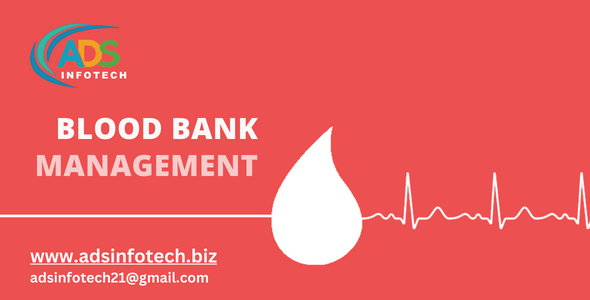Blood bank management software is a digital tool that streamlines the process of managing blood donations and distribution. It is an essential tool for hospitals, blood banks, and other medical facilities that rely on blood donations to provide life-saving treatments to patients.

· Blood bank management software is a digital tool that streamlines the process of managing blood donations and distribution. It is an essential tool for hospitals, blood banks, and other medical facilities that rely on blood donations to provide life-saving treatments to patients.
·
One
of the key benefits of blood bank management software is that it helps to
ensure that blood is available when it is needed. The software can track blood
donations, inventory levels, and expiration dates to ensure that there is
enough blood to meet demand. It can also help to prevent waste by identifying
soon-to-expire blood products and ensuring that they are used before they
expire.
·
Another
benefit of blood bank management software is that it can streamline the process
of matching donors with recipients. The software can track donor and recipient
blood types, test results, and medical histories to ensure that the right blood
is provided to the right patient. This can reduce the risk of transfusion
reactions and other complications.
·
Blood
bank management software can also help to reduce administrative burden and
improve efficiency. It can automate many of the processes involved in managing
blood donations, such as scheduling appointments, tracking donations, and
producing reports. This can save time and resources and allow staff to focus on
other important tasks.
·
However,
there are also some potential challenges and risks associated with blood bank
management software. One of the main challenges is ensuring data accuracy and
integrity. The software must be designed to handle large amounts of data
accurately and securely, and staff must be trained to use it correctly to
prevent errors and mistakes.
·
Another
challenge is ensuring data privacy and security. Blood bank management software
may contain sensitive personal and medical information about donors and
patients, and it is important to implement appropriate security measures, such
as encryption, firewalls, and user authentication, to prevent unauthorized
access and data breaches.
· In
conclusion, blood bank management software is a valuable tool for managing
blood donations and distribution. It can help to ensure that blood is available
when it is needed, streamline the process of matching donors with recipients,
and improve administrative efficiency. However, it is important to address
potential challenges and risks associated with data accuracy, privacy, and
security to ensure that the software is used effectively and safely.
